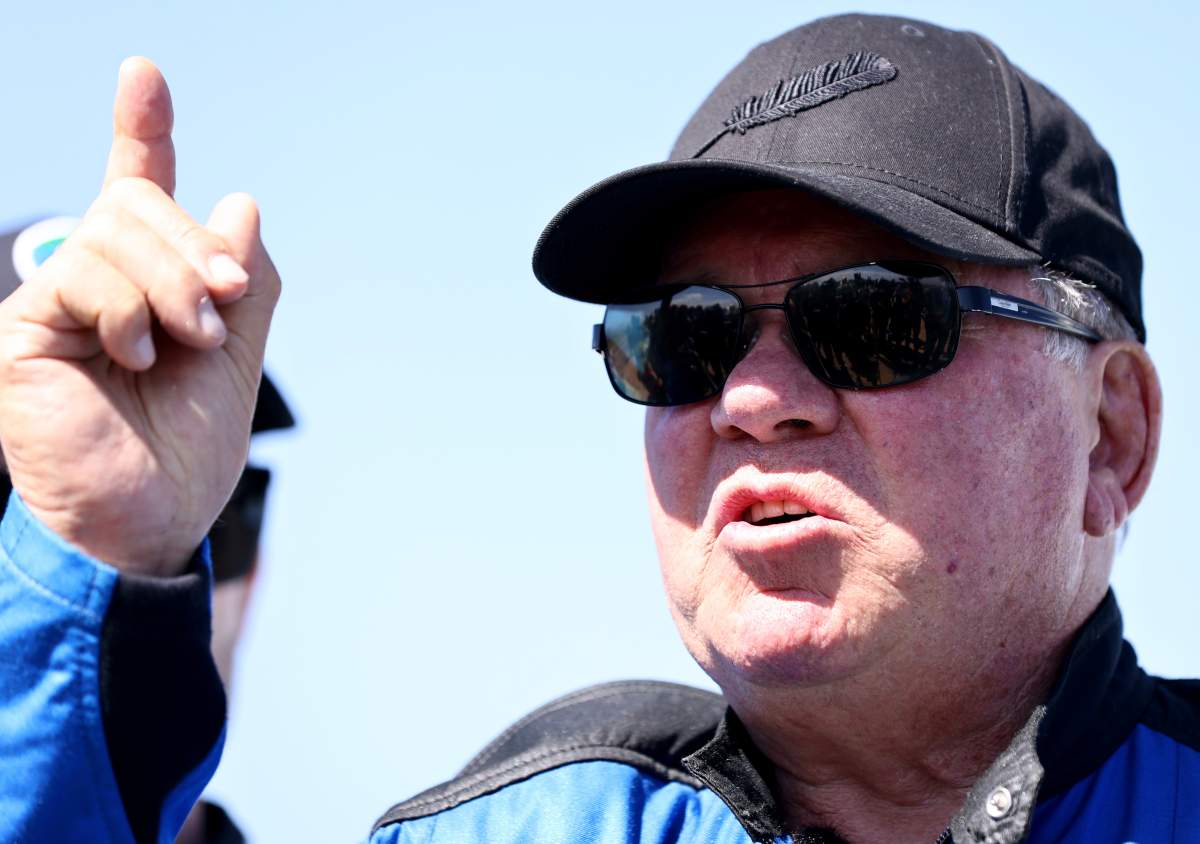Captain Kirk loves to make albums. After a long hiatus after the release of the cult/outsider music favourite The Transformed Man in 1968, he recorded Has Been in 2004, an album that had an unexpected alt-rock radio hit with his cover of Pulp’s Common People, William Shatner’s music output has been prolific, especially since 2011.

If you’re counting, he now has a dozen albums, not counting compilations and bootlegs. His latest release was done in conjunction with Ben Folds, the producer of Has Been, and marks a return to something more orchestral.
Shatner is no stranger to performing this way. We can go back to 2008 for Exodus: An Oratorio in Three Parts recorded with the Arkansas Symphony. And yes, it does tell the story of the Jews’ journey out of Egypt. This time, it’s a performance at the Kennedy Center recorded with the National Symphony Orchestra entitled So Fragile, So Blue, his 12th album.
And there’s more to come.
William Shatner: (Laughs)
AC: …and it turns out I was right.
AC: This came together very quickly. The Blue Horizon mission was on October 13, 2021. This was recorded the following April.
We were taking pictures afterward and the kid was there. And behind me was a grey-haired man: the doctor! I put him together with the mother of the kid. There was something about no insurance, which is why the kid’s eye couldn’t be treated. The doctor said he could help. I was privy to a miracle.

Get breaking National news
In the same magical way, this album came together. I get a phone call from Ben Folds. “I’m the artistic director of The Kennedy Center.” Would you like to come and perform?” My team — producer Dan Miller and songwriter Rob Sharenow — wrote a series of songs and we recorded this album. It’s taken so long — are you aware how complicated this is? Seventy musicians, the union — it went on and on.
AC: It sounds daunting.
WS: Performing in front of a symphony orchestra is an artistic act in itself. Seventy instruments are going and the performer has to know the cues when to come in. I’m standing in front. I can’t see the cues from the conductor. I had no idea. So in the hour or two we had for rehearsal on the Thursday, I realized that I’m lost!
AC: Wait: You had two hours rehearsal?
WS: I had three. I had two hours on Thursday and one hour in the early afternoon for a Friday evening performance. I have no idea where to go, when to come in. No idea! You’d think that’s a bit of an exaggeration, but it’s not.
AC: When you listen to this record, there are tons and tons of cues where you have to come in exactly correct.
AC: If you listen to The Kingsmen’s version of Louie Louie, there are two or three blatant mistakes. Mistakes can result in great beauty and great success.
WS: If you’re lucky. If you go with it, sometimes those mistakes result in an artistic appreciation.
AC: Sometimes beauty is in the mistakes.
WS: That’s right. Sometimes beauty is a mistake.
AC: There’s high fidelity with this recording. The CD is a hybrid CD/SACD disc. You have a two-channel stereo mix plus a five-channel Super Audio CD mix that can be played on a special SACD player. That’s quite rare these days.
WS: The Kennedy Center production people are very weird, to put it kindly.
AC: Your repertoire of albums includes rock, classic rock, alt-rock, country, Shakespearean interpretations, a narration based on the Book of Exodus, a children’s album …
WS: Blues.
AC: A blues record. And a Christmas album.
WS: And all of them got very popular.
AC: We need an electronic dance album from you next.
WS: I’m working on an album now with Robert Sharenow and Brad Paisley. It’s about an idea of mine. It’s not about romantic love. It’s about the strange things I love. For example, I love my health because without health, you can’t give love. I love my nose because the scents of things remind me of other things. It’s things that lead to one kind of love or another.
AC: Will this be a country record?
WS: I don’t know. Brad is such a genius musician and I hope that he makes some of these songs into country music but also into other kinds of music. One of the songs is called I Love Music and the lyrics are aimed at different types of music. We’re going into a studio in Los Angeles in the next few weeks with Brad and his guitar and he will put melodic music to it. And where it’s appropriate, we’ll fill it in.
AC: I have one other request. Once this album is done, please call up your friend Henry Rollins and do a hardcore record.
WS: That’s funny. Henry and I are on a song on Has Been. It’s a spoken word piece. It’s a really fun rhythm song.
AC: OK, but I want a hardcore punk record from you.
Alan Cross is a broadcaster with Q107 and 102.1 the Edge and a commentator for Global News.
Subscribe to Alan’s Ongoing History of New Music Podcast now on Apple Podcast or Google Play









Comments